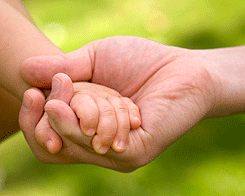[T]he Government does not condone a legal structure that perpetuates [a] sense of social isolation, particularly when it is directed towards same-sex parents doing the sometimes joyous, sometimes difficult but always important task of raising the next generation of Australians. Same-sex parents are entitled to our support in the same way that all parents, regardless of their relationships status, are so entitled.
The Hon. John Hatzistergos (NSW Attorney General)

In early May NSW Attorney General John Hatzistergos introduced the Miscellaneous Acts Amendment (Same Sex Relationships) Bill 2008 into the Legislative Council of the NSW parliament. (This NSW State Bill is not to be confused with a recent Federal Bill introduced by the Federal Attorney General, Senator Robert McClelland; see link below.) John Hatzistergos described how the Amendment Bill is a further step in a long process of NSW legislative reform.
The object of the Bill is to amend certain Acts, Regulations and other instruments to extend the meaning of de facto relationships to include same-sex partners. The Bill is complex and will require closer evaluation, but there appears to be a mix of amendments that will give same sex partners certain benefits and obligations.
The intention of this briefing is to describe and respond to just one specific amendment within this Bill. An upcoming briefing will outline a Christian response to same-sex couples more generally. It includes four "channel markers' that have guided our response to the Bill.
We remain committed to the view that marriage is between a man and a woman, and that the optimal care of a child includes the experience of being mothered and fathered. However, we accept that there is a need to address inconsistencies and discrimination within the law towards same-sex couples that deny them certain financial and work related benefits, and which set up administrative obstacles that hinder same-sex parents and carers in the provision of best care for children.
In a second reading speech, John Hatzistergos explained that the Bill responds to "many representations made to the Government by same-sex parents about their feelings of social exclusion in their role as parents.' A child raised by two women (or more uncommonly, by two men) often has needs that are hindered when one carer cannot prove that she is the child's legitimate carer.
The Bill's many aspects are quite complex for the legally untrained. But an area of initial concern is a proposed amendment to the Births, Deaths and Marriages Registration Act 1995, which will make it possible for the Registrar to:
1. add information to the child's birth registration about the identity of a woman who is presumed to be a parent, in the circumstances set out in those amendments to the Status of Children Act 1996, as the de facto partner of the birth mother of the child, and
2. where relevant, remove information that purports to identify a person as the father of the child.
In other words, if the Amendment is adopted, a child's birth mother will be able to apply for a second woman's name to appear where a father's name would once have appeared. In this way, society would presume and accept that the second woman is functionally the child's other parent.
But it should be well noted: the Attorney General emphasised that this provision would only extend to children conceived through artificial reproductive technologies, and not through sexual intercourse. The Government's argument is that the amendment is a logical extension of current rules, where the original owner of a sperm or ovum does not necessary appear as "father' or "mother' on a birth certificate.
It is of concern that information on a child's birth registration may be changed to identify social parents rather than genetic parents. Many questions about family relationships arise from fertilisation procedures, and perhaps we are missing something. But at face value, the amendment appears to privilege parents and carers instead of the child, who may eventually be denied the possibility of knowing the truth about their genetic origins. We realise it is expedient to modify a birth certificate as a straightforward route to recognising another carer. But the amendment compounds what might be an existing mistake, insofar as birth certificates already do not always name a biological parent.
For many years birth certificates have been the historical repository of our genetic lineage. Blank spaces where a father's name should appear, are tragic exceptions, not the norm. To shift the meaning of the birth certificate away from a child's biological lineage seems to pretend that their biological origins are unimportant. What may seem expedient for best care of a child now, may not turn out to be so in future.
We believe the Government should rethink the proposal to use birth certificates to this end. It will need to explore other tools for this task, such as "parenting orders'; or, it will need to wrestle with the difficult complexities of adoption law.
If you would like to view the bill or read the explanatory memoranda, they can be found online.
The Bill is likely to be debated in the Legislative Council soon after it resumes on 3rd June, 2008 and if passed will then go to the Legislative Assembly.
If you would like to contact your local member to raise concerns or discuss the Bill, their contact details can be found on the NSW Parliament website.
Andrew Cameron and Lisa Watts
for the Social Issues Executive, Diocese of Sydney
Sources/Further Reading:
Parliamentary Research Service, "Legal Recognition of Same Sex Relationships"
Speech by NSW Attorney General John Hatzistergos
Note: This paper is intended to assist discussion and may be corrected or revised in future. .(JavaScript must be enabled to view this email address) are very welcome, but the SIE cannot guarantee a reply. Visit our second website, for other material.



























